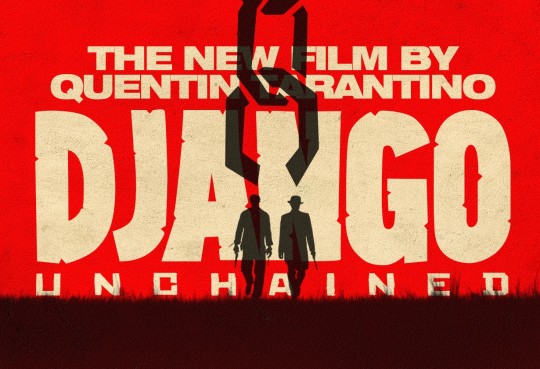Last we heard, Django Unchained was going to be Quentin Tarantino's first film to screen in China—after the filmmaker made some modest cuts required by the state censorship board, naturally. This caused Daniel Wattenberg* to throw some shade on the director:
Mr. Tarantino answers to a different master — the state-controlled Chinese film industry, which controls foreign access to the lucrative Chinese movie market, already the second largest in the world, and growing.
And the market slave that he is, Mr. Tarantino has agreed to dilute "Django Unchained" to assure his Oscar-winning film will open as scheduled April 11 in China, where foreign films are meticulously vetted by state censors in a process typically lasting, The New York Times reports, 15 to 30 business days.
The most interesting part of Danny's piece, however, is his conclusion, in which he suggests that the censors may have made a fatal mistake by allowing the film to screen in any form:
Nested within the local and historical particulars embedding "Django" in America's pre-Civil War South is a rabble-rousing call to arms, a timeless and universal narrative of oppression, struggle and freedom. Mr. Tarantino tells the tale of a slave who, with the aid of a sympathetic foreigner, escapes bondage and turns the tables on his ruthless masters in a relentless campaign to regain his family, reclaim his liberty and punish the privileged elite of complacent oppressors who'd kept him in captivity.
If I belonged to a privileged Chinese Communist Party elite of notoriously parasitic apparatchiks dictating the terms of existence — down to fundamentals of family size and structure — to a captive population of more than a billion, I'd be in no hurry to approve that movie for wide national release. Would you?
Mere hours after the publication of Danny's piece, it was announced that the film was pulled from every theater in which it was playing. "Technical difficulties" were cited—as if hundreds of projectors simultaneously gave up the ghost.
Coincidence? Well, maybe. But it's an interesting coincidence. There was some talk late last year after China's CCTV aired the anti-authoritarian V for Vendetta that restrictions on the media were being loosened. Given the treatment of Django Unchained—as well as myriad other Hollywood productions to be screened in China—that doesn't really seem to be the case.
The real issue here, of course, is the disgust we should all feel with Hollywood for selling out its beloved "principles" in the name of the al-ighty-ollar. This is the same industry that is filled with people who cry bloody murder because the NC-17 rating—a rating, we should note, that is handed down by a voluntary, industry-run panel and not the government—kills artistic freedom, or whatever.** But hey. Why let artistic freedom get in the way of a few yuan are on the line?
*Full disclosure: Danny used to be my boss when I was at the Times and still edits the occasional freelance submission from yours truly.
**I should note that I've always actually respected Tarantino's take on the MPAA and the NC-17. He's one of the few filmmakers to act like a grownup with regard to ratings. Still: There's a huge ethical difference between making a small cut to a film that will be shown regardless of rating and making cuts to a film in order to kowtow to a state-run censorship board.
